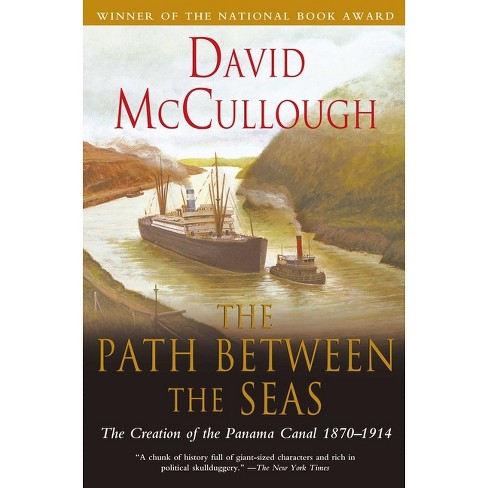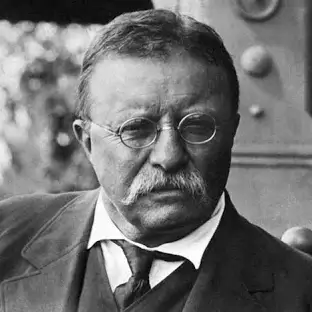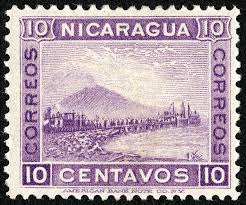
The biggest undertaking of all time
The Panama Canal always had a special place in my heart. I grew up in Panama. When I was in school, we visited the Canal every year. At that time, I did not appreciate the canal’s importance. I thought every country had its canal equivalent, that special place they take their school children to. But little did I know, that nestled among the impenetrable tropical rainforest is one of the biggest human undertakings of all time.
Over the years, I realized how special the canal is. Not everyone has such a magnificent site in their backyard. But above all, I realized the true greatness of the canal when I read McCullough’s Path Between The Seas.
The construction of the Panama Canal was one of the most important events of the modern era. Few projects in history had such a high toll — on human life, resources, sacrifice, and effort to put into reality. “And McCullough’s account does it justice. It’s as if he wanted his book to rival the very magnificence of the canal.
The Path Between The Seas is the ultimate account of the construction of the Panama Canal and the greatest piece of nonfiction I have read up to date.
McCullough covers all the details masterfully.
Starting with Ferdinand De Lesseps, the Francaise Extraordinaire, the visionary behind the canal. Despite no training in engineering or finance, he performed the great miracle of building the Suez Canal. And then he attempted something much bolder.
He transformed the countless surveys done for hundreds of years in Panama into concrete action. Nobody believed when the digging started on the 1st of February, 1881.
And so began the debacle of the French Canal, one of the most catastrophic failures of all time.
The French effort and ultimate failure
The French were determined to build the canal. They saw themselves as soldiers under fire. But they endured insurmountable hardships in Panama. Disease, political revolt, endless digging in dreadful tropical climate, (“the more digging that went on, the more digging there was to be done”), dwindling finances, and the inevitable decline of Ferdinand De Lesseps whom the French believed in more than in the canal itself.
Their resolution to such demanding circumstances was heroic and for more than a decade they battled on.
Ultimately, they failed. It was a technical decision that sealed their fate. Had the French decided to build a lock canal instead of a sea-level canal like at Suez they would have probably finished it. Finally, the money ran out, and De Lesseps was forced to abandon his greatest dream.
The extraordinary French effort took away more than 20,000 lives, cost about USD 287,000,000, and they had only completed a third of the necessary digging.
American takeover

After the French, the next to be summoned to the great enterprise in Panama were the Americans. Led by the iconic Theodore Roosevelt, who declared that “No single great material work which remains to be undertaken on this continent is of such consequence to the American people”.
The American takeover of the canal was symbolic. It represented the shift in world power from Western Europe to The United States.
While for the French the canal meant an affirmation of French genius and their supremacy in the art of civilization. For the Americans, ever practical, the canal was a geopolitical priority.
The strongest case for the need for the canal was the “Race of The Oregon”.
During the Spanish-American war The Oregon, one of the first true battleships, had been in San Francisco when it was urgently needed to join the battle in the Caribbean. But first, she had to sail around the Horn of Tierra de Fuego a distance of 12,000 miles—instead of some 4,000, had there been a Central American canal.
Panama or Nicaragua?
However, the Americans were not planning to start work where the French left off. They were not even thinking about building a canal in Panama. Their eyes were set on Nicaragua, which they considered a more suitable option.
But it was Bunau-Varillas’ heavy lobbying for Panama (to restore French honor!) and a volcano eruption in Martinique, which put into the spotlight the risk posed by Nicaragua’s numerous volcanoes that placed the efforts on Panama again. Had the volcano not erupted just before the senate’s voting the story might have been different.

A Nicaraguan stamp with a visible volcano was handed out to American senators during the lobby for Panama.
The Americans succeeded in Panama. They had strong leadership. The full support of the US government — which meant endless financial resources. Dr. Gorgas managed to subdue yellow fever and malaria. And they made a wise technical decision; they chose to build a lock canal.
When the Canal was finally inaugurated in 1914, the US was positioned as the most capable country in the world.
Beyond the canal
McCullough’s account is more than anything else a testament to human willpower. The ultimate story of humanity participating in the act of creation that God endowed them with.
After reading this book. I understood that every government needs a great enterprise. A great energizing project that can rally the citizens behind it; a tangible demonstration of its capacity.
The need for a big project is not only necessary for countries. But also individuals. Every person needs at least one great project, one great dream, that they can work on during their lifetime.
The story of the construction of the canal will inspire you more than any contemporary self-improvement. Self-improvement is pedestrian compared to the greatness and glory of the canal. Which, after reading Path Between The Seas I will certainly see with different eyes next time I visit.